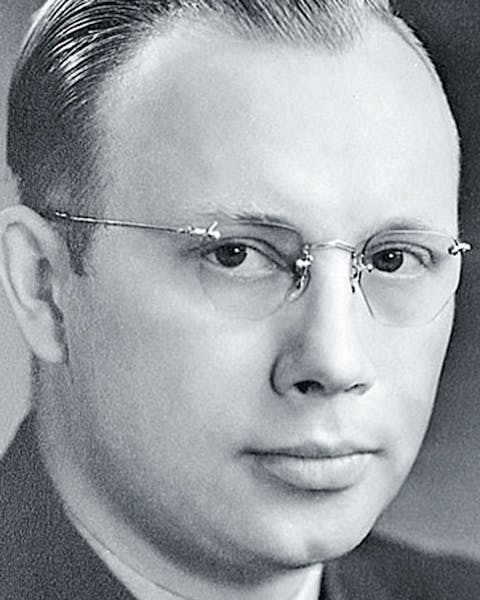Rob Horley is a Lake of the Woods fishing guide who spent much of last summer piloting a client's 21-foot Ranger powered by a new 300-horse Mercury Verado outboard.
Almost daily for about six months — May through October — Horley observed with keen interest the rig's performance, particularly that of its big outboard.
The reason was threefold: He puts hundreds of hours on a boat and motor each summer, so performance and dependability are critical. Additionally, high-horsepower outboards are expensive — think $15,000 to $20,000 — so no one wants to make a purchasing mistake.
And even fewer boaters want to lie adrift on Lake of the Woods with a dead motor.
"But all summer, we were more than satisfied with the 300 Mercury," Horley said. "On my own boats, I've switched back and forth between Yamahas and Mercurys, and I've had good luck with Yamahas.
"But this Mercury is really nice. It's definitely the quietest big motor on the market. And it's great for trolling for muskies in the fall."
Now celebrating its 75th year, Mercury has become a resurgent player in outboard marine power, after being buffeted a decade or two back by Japanese competitors Honda and Yamaha, whose dependable four-stroke engines and aggressive marketing won over a lot of boaters, including many Minnesotans.
In the years since, competition among outboard motor builders has intensified, as manufacturers Bombardier, builder of Evinrude E-Tec outboards, and Suzuki have joined the fray with innovative, dependable motors, each of which will be displayed at the Minneapolis Convention Center beginning Thursday when the Boat Show opens for a four-day run.
"Having strong relationships with boat builders, an excellent dealer base and developing new sales channels are all really important to succeeding in this business," said David Foulkes, Mercury Marine's global vice president of engineering and product development, in a phone interview this week. "But product leadership is absolutely critical."
An aeronautical engineer by training, Foulkes joined Mercury six years ago from Ford Motor Co. and oversees more than 450 engineers employed primarily at the company's headquarters in Fond du Lac, Wis.
Owned by Brunswick Corp. — which also owns Minnesota boat builders Lund and Crestliner, among others — Mercury has launched about 15 million outboards in its 75-year history.
Not bad for a company whose first major manufacturing facility was an old Wisconsin dairy barn.
Today, Mercury outboards can be found throughout the world, including the Minnesota-Ontario border, where Mark Zup owns a fishing camp and is among customers outboard builders aggressively target.
Each year, or at least every other year, resort owners buy or lease fleets of outboards at a time.
"Each outboard brand pushes real hard to get us to buy their products," Zup said. "But to be honest, I don't have as big a preference now as I once did because everyone is building better motors.
"We run Mercurys in the 40-horse class because they've done real well for us. Right now, on the bigger end, with our tow boats, we have Evinrudes and Yamahas, and we've had Suzukis. To me, the motors I buy depends to some degree which dealer has the best promotion."
Foulkes said he is unsure how much bigger outboards can be built, now that 350-horse rigs are on the market.
"You can get more power on the back of your boat by adding more engines, or by making individual engines more powerful," he said. "We don't think we've reached the top end yet for outboard horsepower. The market is still digesting these bigger motors, so we'll see."
That said, building lighter and more fuel-efficient outboards is the goal of all manufacturers.
The 150-horse Verado Mercury introduced in 2011 was the smallest and lightest in its class, for example, and the company hopes to transition many of its features to the company's higher-horsepower models.
"Can four-strokes get lighter and smaller?" Foulkes said. "I think they can, because they're used in a lot of industries, such as automotive, where light weight is valued. And we can learn from them."
If less weight means skimming across Lake of the Woods still faster, looking for a favorite muskie or walleye haunt, Horley is all for it.
For now, though, he's going pretty fast.
"Top speed with that big Ranger and the 300 Mercury," he said, "is 63 miles an hour."
Dennis Anderson • danderson@startribune.com

Anderson: Celebrate Earth Day by rekindling real connection to nature
Anderson: Anglers protesting tough new Mille Lacs rules are wrong

Anderson: Courts, not politicians, should rule on Red Lake, White Earth lands

Anderson: Multimillion windfall gets invasive carp deterrent moving
![A young whitetail deer searches for food as another blanket of snow coats the arrowhead. ] Minnesota -State of Wonders, Arrowhead in Winter BRIAN PETE](https://arc.stimg.co/startribunemedia/WK32UWWY6FKNWJUIYCJ6ZPT4AU.jpg?h=91&w=145&fit=crop&bg=999&crop=faces)

